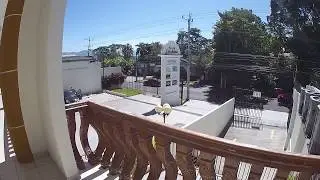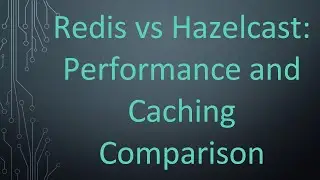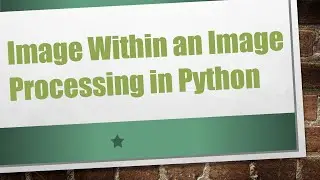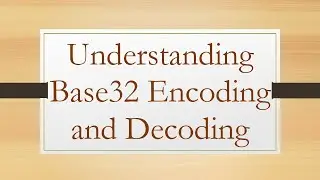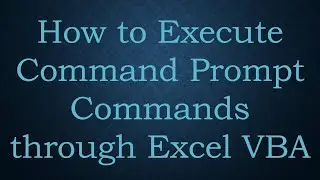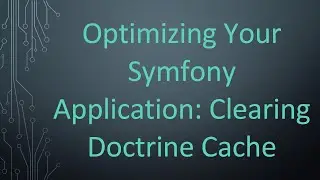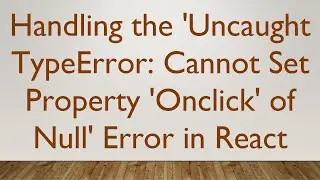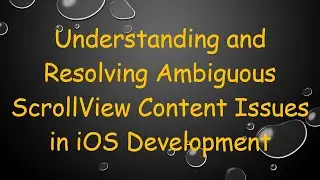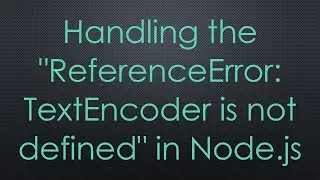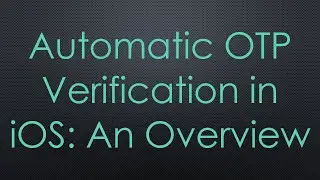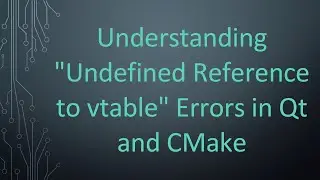Resolving the audioPlayerDidFinishPlaying Delegate Issue in Swift AVAudioPlayer
Having trouble with the `audioPlayerDidFinishPlaying` delegate method not being triggered in your Swift app? This guide covers the common pitfalls and how to ensure proper audio player functionality using the Singleton pattern. Get your audio notifications working seamlessly!
---
This video is based on the question https://stackoverflow.com/q/67785503/ asked by the user 'Zhou Haibo' ( https://stackoverflow.com/u/10158398/ ) and on the answer https://stackoverflow.com/a/67785552/ provided by the user 'Shehata Gamal' ( https://stackoverflow.com/u/5820010/ ) at 'Stack Overflow' website. Thanks to these great users and Stackexchange community for their contributions.
Visit these links for original content and any more details, such as alternate solutions, latest updates/developments on topic, comments, revision history etc. For example, the original title of the Question was: audioPlayerDidFinishPlaying is not triggered
Also, Content (except music) licensed under CC BY-SA https://meta.stackexchange.com/help/l...
The original Question post is licensed under the 'CC BY-SA 4.0' ( https://creativecommons.org/licenses/... ) license, and the original Answer post is licensed under the 'CC BY-SA 4.0' ( https://creativecommons.org/licenses/... ) license.
If anything seems off to you, please feel free to write me at vlogize [AT] gmail [DOT] com.
---
Troubleshooting audioPlayerDidFinishPlaying in Swift's AVAudioPlayer
Introduction
When working with Swift's AVAudioPlayer, developers often encounter issues that prevent key delegate methods from being triggered, particularly audioPlayerDidFinishPlaying. This can disrupt the flow of audio playback and handling in your app. If you've set up your audio player but find that your delegate methods aren't firing as expected, you're not alone. Understanding how the delegate system works in conjunction with the Singleton pattern is crucial for resolving this problem.
Problem Overview
A common scenario arises when you set up your AVAudioPlayer in a Singleton class. For instance, you might initiate your AudioPlayer class and assign a delegate to your player instance within a UIViewController. However, sometimes the delegate methods, such as audioPlayerDidFinishPlaying, simply do not get called. This leads to frustration and confusion, especially when debugging.
In your case, here's what your code looks like:
[[See Video to Reveal this Text or Code Snippet]]
Identifying the Issue
The main problem here arises from the order in which operations occur. When you set the delegate to self using:
[[See Video to Reveal this Text or Code Snippet]]
If the player instance is nil at this point, the delegate will not work because there is no active audio player to be delegated to.
Common Missteps
Setting the delegate before the player is initialized.
Attempting to call play() on an uninitialized player.
Misunderstanding the lifecycle of the Singleton instance and its properties.
The Solution
To ensure that the delegate method is triggered correctly, follow these steps:
Adjust the Order of Operations
Make sure to initialize the player and set the delegate in the correct order. Here’s the adjusted snippet:
[[See Video to Reveal this Text or Code Snippet]]
Why This Works
When you call play(url:), the AVAudioPlayer instance gets created and assigned to AudioPlayer.shared.player. By setting the delegate after this call, you ensure that the player is no longer nil when you attempt to assign self as its delegate.
Summary of Steps
Call the method to initialize and start playing audio first.
Then, assign the delegate to avoid working with a nil player instance.
Always check for potential nil values when setting delegates.
Conclusion
Using AVAudioPlayer effectively requires attention to detail regarding its lifecycle, especially when implementing it in a Singleton pattern. By adjusting the order of your setup code and ensuring that the player instance is initialized before assignment, you can successfully trigger the audioPlayerDidFinishPlaying delegate method as intended. With these adjustments, you can streamline your audio playback functionality, making your Swift app more efficient and responsive.
If you continue to run into issues, consider double-checking the documentation for any additional details that could affect playback and delegation. Happy coding!






